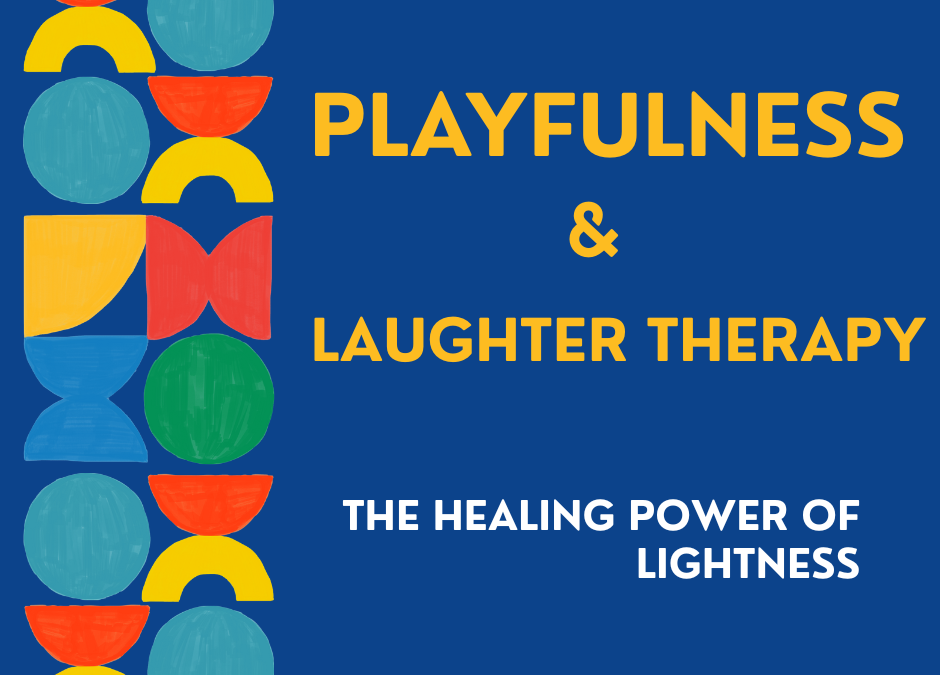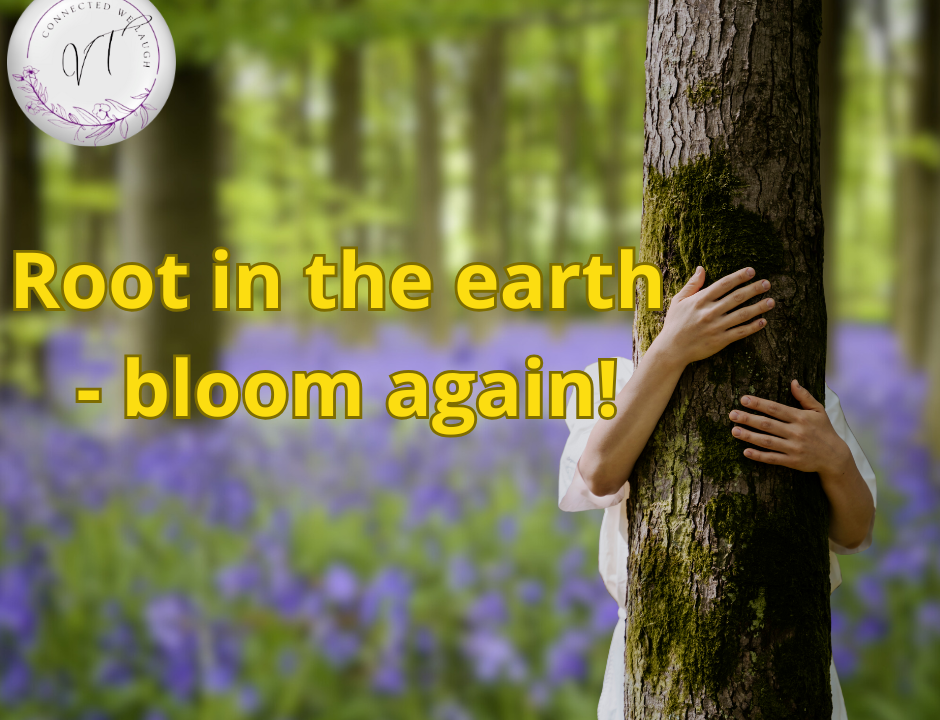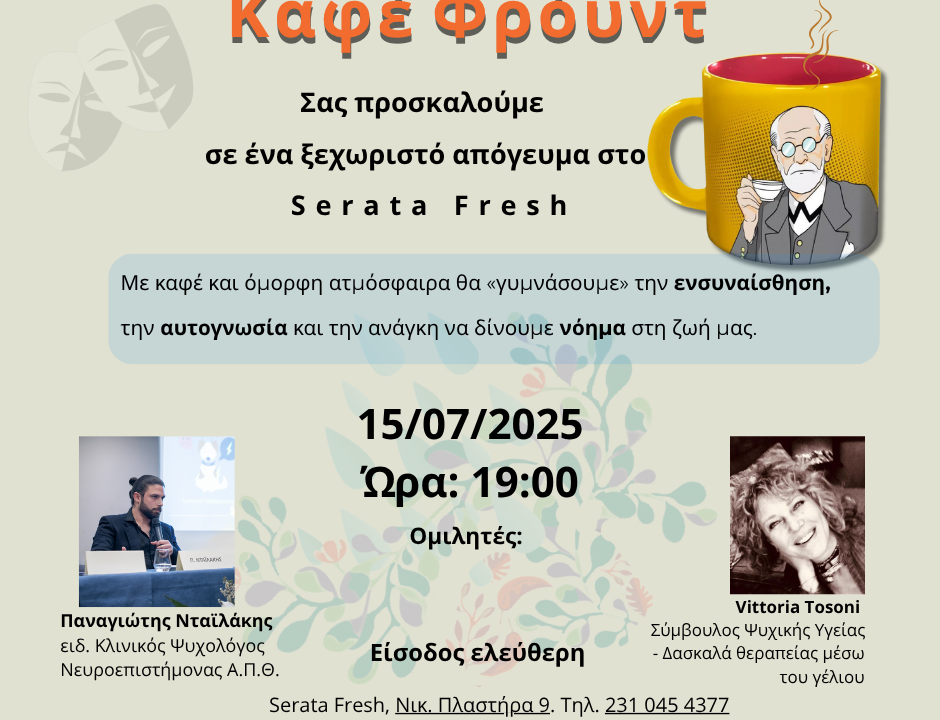
Coffee Freud – Where Listening Meets Lightness
July 1, 2025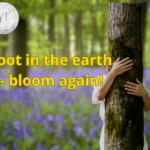
Forest Therapy: Healing with Trees, Returning to Ourselves through Nature!
July 21, 2025We live in a time where taking ourselves seriously seems like a social obligation. Being productive, efficient, “put together”… even when we feel the weight of the world inside. In this context, talking about playfulness and laughter therapy might seem countercultural. Yet, they are two essential keys to rediscovering well-being, vitality, and authentic connection—with ourselves and with others.
In this article, I want to share with you what we mean by playfulness and how laughter therapy can help us embrace a deep, transformative, and necessary lightness.
What is “playfulness”?
The word “playfulness” is often translated as “playfulness” or “being playful,” but that would be reductive. It’s not just about “playing” in the childish sense, but about cultivating a mental state that is open, curious, creative, and flexible—approaching life with a sense of wonder and without the constant need for control.
Playfulness is the ability to experience situations with a light spirit, without losing depth. It allows us to step back from drama, reframe problems, explore alternatives, and experiment with new perspectives. It’s the vital spark that reactivates our energy when we feel depleted or helps us build more genuine relationships, freed from the rigidity of roles.
Being playful doesn’t mean being superficial. On the contrary—it’s a smart way to face complexity with flexibility, resilience, and awareness.
Laughter Therapy: Laughing as a Tool for Healing
Laughter therapy is a discipline that uses the therapeutic power of laughter as a tool to improve physical, emotional, and relational health. It’s not necessarily based on jokes or comedy, but on a deeper principle: the body doesn’t distinguish between spontaneous laughter and self-induced laughter. In both cases, the physiological benefits are real.
In a laughter therapy session, laughter is stimulated through breathing exercises, play, movement, and group interaction. And when people laugh together—even if it starts “on command”—something authentic opens up: the body relaxes, the mind lightens, and a sense of connection is created that goes beyond words.
Playfulness and Laughter Therapy: A Winning Combination
If playfulness is the attitude, laughter therapy is the practice. Together, they form a powerful duo: they help us rediscover the joy of simply existing, the power of the “here and now,” and the freedom to be ourselves without shame.
When we’re too serious, rational, or self-critical, we forget how important it is to let go of control. Laughter, in this sense, is a liberating act—it dissolves tension, opens the heart, and shifts our perspective. But in order to truly laugh, we need to allow ourselves to be a bit “silly,” a bit vulnerable, a bit human.
And here’s where playfulness comes in: it gives us the inner permission to not know everything, to make mistakes, to be imperfect. In laughter therapy, playfulness is the key that unlocks genuine laughter. There’s no judgment, no performance—just a safe space where we can explore lightness as a deep wellness practice.
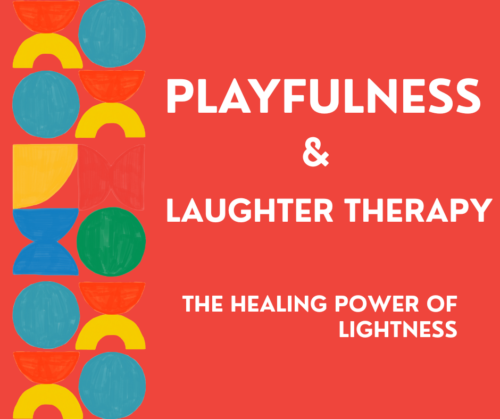
The Benefits of Laughter and Conscious Play
Integrating laughter and conscious play brings benefits on multiple levels:
1. Physical Benefits
- Increases oxygenation of the body and brain
- Reduces cortisol (stress hormone) levels
- Strengthens the immune system
- Improves circulation and heart function
- Relieves muscle tension and chronic pain
2. Emotional Benefits
- Promotes the release of endorphins (the “feel-good” hormones)
- Helps reduce fears and worries
- Boosts self-esteem and confidence
- Gently helps process blocked emotions
3. Relational Benefits
- Creates connection and a sense of belonging
- Reduces conflict and improves communication
- Strengthens empathy and cooperation
4. Existential Benefits
- Makes it easier to stay present
- Renews the sense of wonder and gratitude
- Encourages living with more authenticity and spontaneity
The Courage to Be Light
Cultivating playfulness in our daily lives is an act of courage. Yes, because going against the grain of the “doing” and “controlling” culture requires presence and conscious choice. It requires rehabilitating the unproductive, the gratuitous, and the “useless” as sacred space for the soul.
At the same time, laughing—even when it doesn’t feel like the right moment—can be a revolutionary act. Not to deny suffering, but to not completely identify with it. Laughter doesn’t erase problems, but it makes them easier to face.
As Viktor Frankl once said: “Laughter can provide a person with a moment of freedom.” And sometimes, that moment is all we need to begin again.
Practice: How to Cultivate Playfulness and Laughter Every Day
Here are some simple ways to train your playfulness and bring more laughter into your life:
- Try “nonsense”: speak in gibberish for a few minutes. It frees the mind and enhances creativity.
- Move without a goal: dance alone, make silly movements, or invent your own playful “ritual.”
- Change perspective: look at an everyday object and imagine absurd or alternative uses.
- Laugh for no reason: start laughing even if nothing is funny. After a few seconds, the body will take over!
- Create playful space: join a laughter therapy session or gather a group of friends to laugh without filters.
- Be kind to yourself: lightness is born from accepting our fragilities, not from perfectionism.

